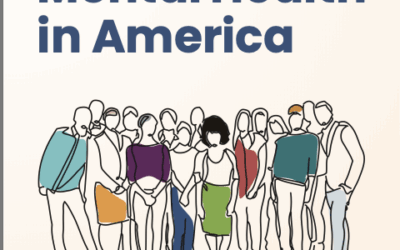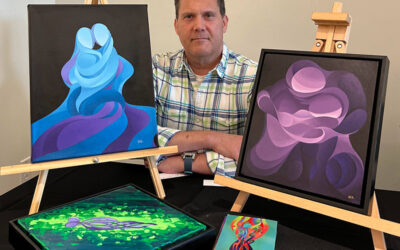As I retire from my position as Executive Director at Mental Health Virginia, I want to share some thoughts and highlights of our work, as well as a few pictures.
Non-profit work is shaped by broader events and social movements, and at least four of these provided context for MHV’s work over the past decade:
- The move to decriminalize mental illness
- The COVID 19 pandemic and resulting impacts on mental health
- A crisis of Virginia’s mental health crisis system
- The emergence of Peer Recovery Specialists as a recognized profession
The intersection of these events added an urgency to much of the work, along with the opportunity to partner with others to improve access to mental health care.
Mental Illness and the Criminal Justice System
A few months before I started work, 24-year-old Jamycheal Mitchell was found dead in a Hampton Roads jail cell. With a history of severe mental illness, he was denied bail for stealing $5 in snacks from a 7-Eleven, and wasted away for months in horrific conditions, never being transported to the state hospital as had been ordered by the court. Media coverage and investigations revealed a series of system failures, along with other cases of neglect in Virginia jails.
In the aftermath of the Mitchell case, the General Assembly passed bills to create a stronger jail oversight board, and develop minimum standards for mental health care in jails. I was part of the group that drafted the minimum standards, along with Sheriffs, jail administrators, clinicians and others.
We joined with other advocates to address failed policies such as the jailing of individuals in crisis as a response to a call for help, and execution of someone with a severe mental illness. These issues were a priority for me, as my previous jobs were in the criminal justice system, where I saw that untreated trauma, illness, and abuse often led to incarceration.
The dehumanizing entanglement of mental illness and the criminal justice system is a longstanding tragedy, perhaps the most vexing of all in this field. Reform efforts continue, with some very gradual success. Fortunately, there are legislators from both parties, as well as law enforcement and corrections officials sincerely committed to diverting individuals with a serious mental illness from jail, and improving their treatment while incarcerated. But there is much more to do.
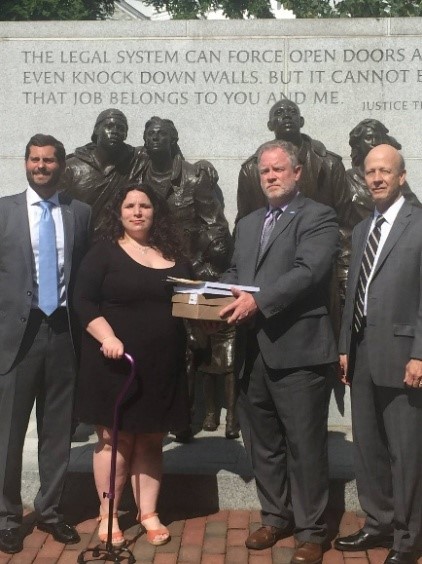
(Petitions to halt execution of William Morva (NAMI VA, Amnesty International, ACLU of VA, MHV)
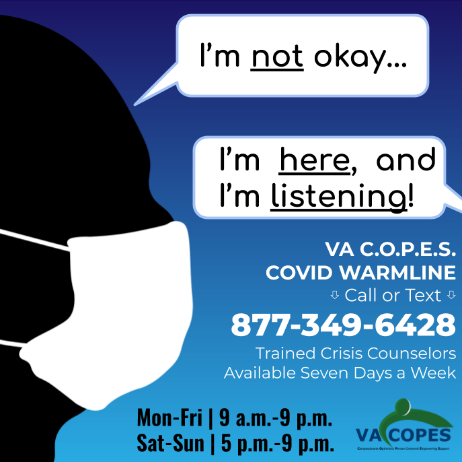
COVID
When the pandemic hit, we worked with the state to create a special COVID response help line for mental health concerns. With a skilled and diverse team, we assisted over 5,000 callers with emotional support and resource information. At the same time, the number of calls to our existing peer warm line tripled. Emergency support from the Community Foundation of Richmond and others enabled us to add more staff and serve more people.
People would call our warm lines who had never thought of themselves as having a mental health challenge. They just knew they weren’t feeling right. Deprived of the human connections and routines that keep us well – physically, mentally, and emotionally – all of us were challenged to find ways to stay connected, to take care of our complete health. Varied groups asked for presentations on how to care for their mental health.
In response to the opioid crisis, before the pandemic, Richmond Behavioral Health had already asked us to partner with them, SAARA and others to help form the Alive RVA addiction recovery support warm line, which continues to provide essential peer support to many in the RVA area and beyond.
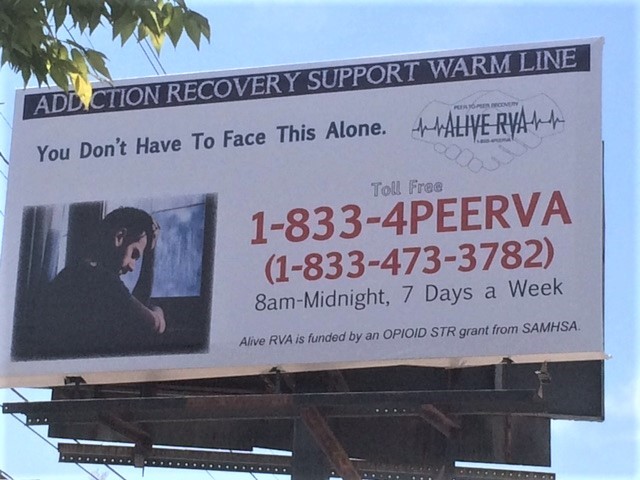
We pivoted our recovery education services from in-person retreats to webinars, enabling us to serve more people throughout the state. We added a career podcast for peer recovery specialists, virtual delivery of trauma recovery services for crime victims, and virtual mental health peer support for adults under probation.
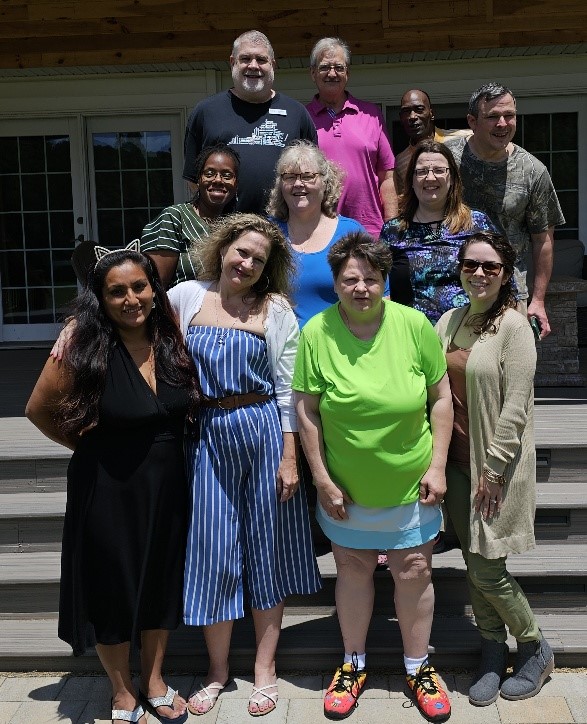
(Re)STORE: Retreat 2024
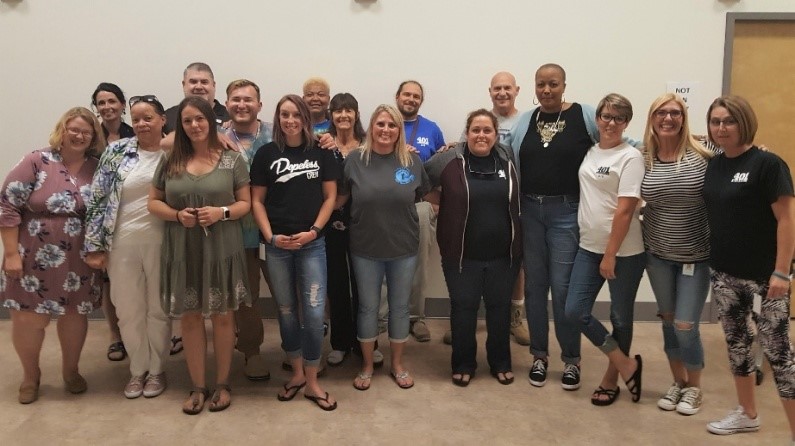
CELT New River Valley 2019
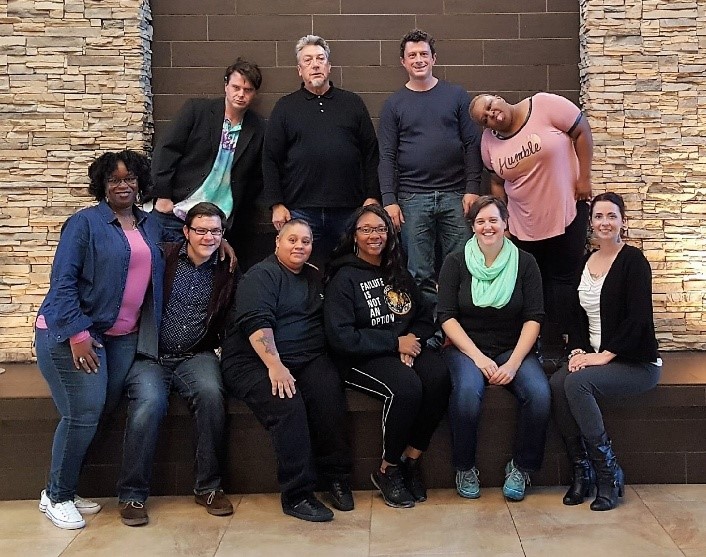
CELT 2018
Behavioral Health System Crisis
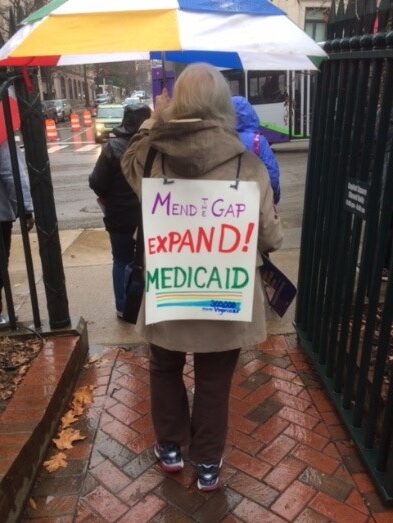
Long before the pandemic, Virginia’s system was struggling. The hospitals were unable to keep up with the need for crisis care, and the urgency of the problem led to calls for more state hospital beds. Along with legislative champions and advocates inside and outside of government, we sought to reframe the problem as a need for appropriate care, not necessarily a hospital bed.
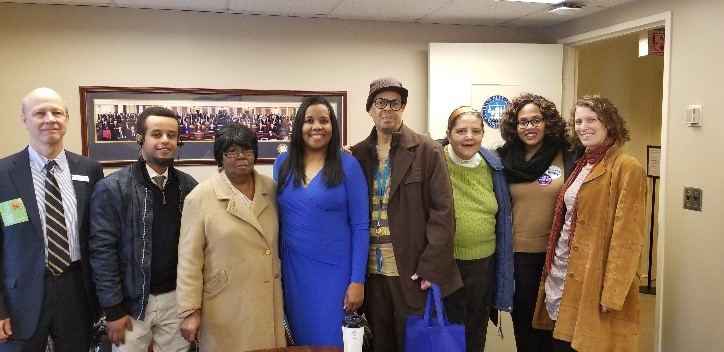
The pandemic made the problem much worse, with more people in crisis while hospital units closed due to staff shortages. We supported more state funding and a community system of care with a range of options in addition to emergency rooms and hospitals. At last, the state is implementing a Crisis Now model of community-based response, mobile crisis teams and local short term crisis centers.
Peer Recovery Specialists (PRS)
The growth of the PRS profession is perhaps the most exciting development in the behavioral health workforce today.
Training and empowering people in recovery from a mental illness is fundamental to our mission. Our staff was among those helping draft the certification curriculum for this new profession, and all of our direct support services – recovery education and training, the warm line, and probation peer support, are provided by Peer Recovery Specialists.
We’re proud that our warm line provides the 500 experience hours required for PRS to become state certified. Developed and expanded by our Warm Line Managers, our training and supervision model gives trainees experienced support from the entire warm line team.
For aspiring and working PRS, Mental Health Virginia hosts the Virginia Peer Recovery Specialist Network, with a website, a job and internship board, a newsletter with job openings and a face book group.
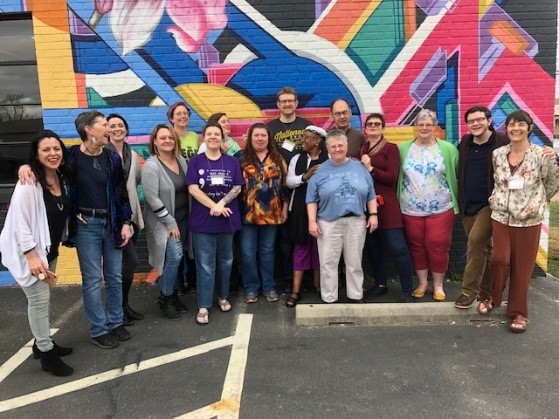
Intentional Peer Support Training
Strengthening the Organization
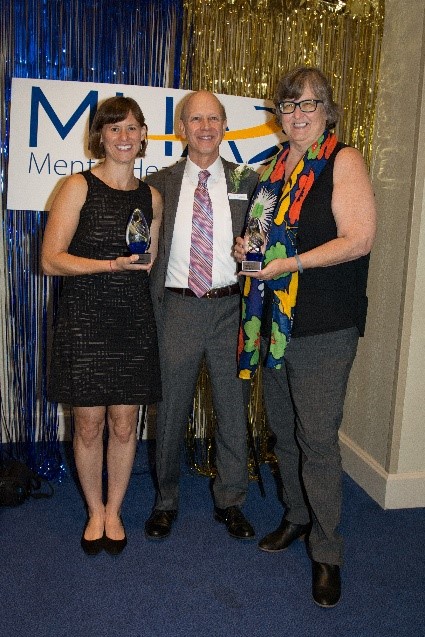
We added members to the board and informed more people about our proud history and services. In 2017 we celebrated our 80th anniversary, with the CEO of national Mental Health America as a guest, and gave transformational leadership awards to Bonnie Neighbour and Mira Signer.
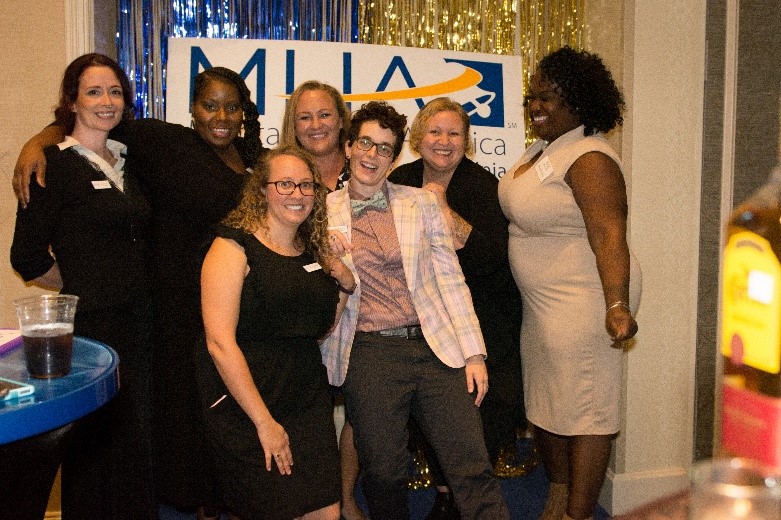
The anniversary event led to an annual advocacy award dinner, called Victory for Mental Health, to which we added an auction of recovery art. With so many system challenges and people in distress, it is important to celebrate the victories when we can.
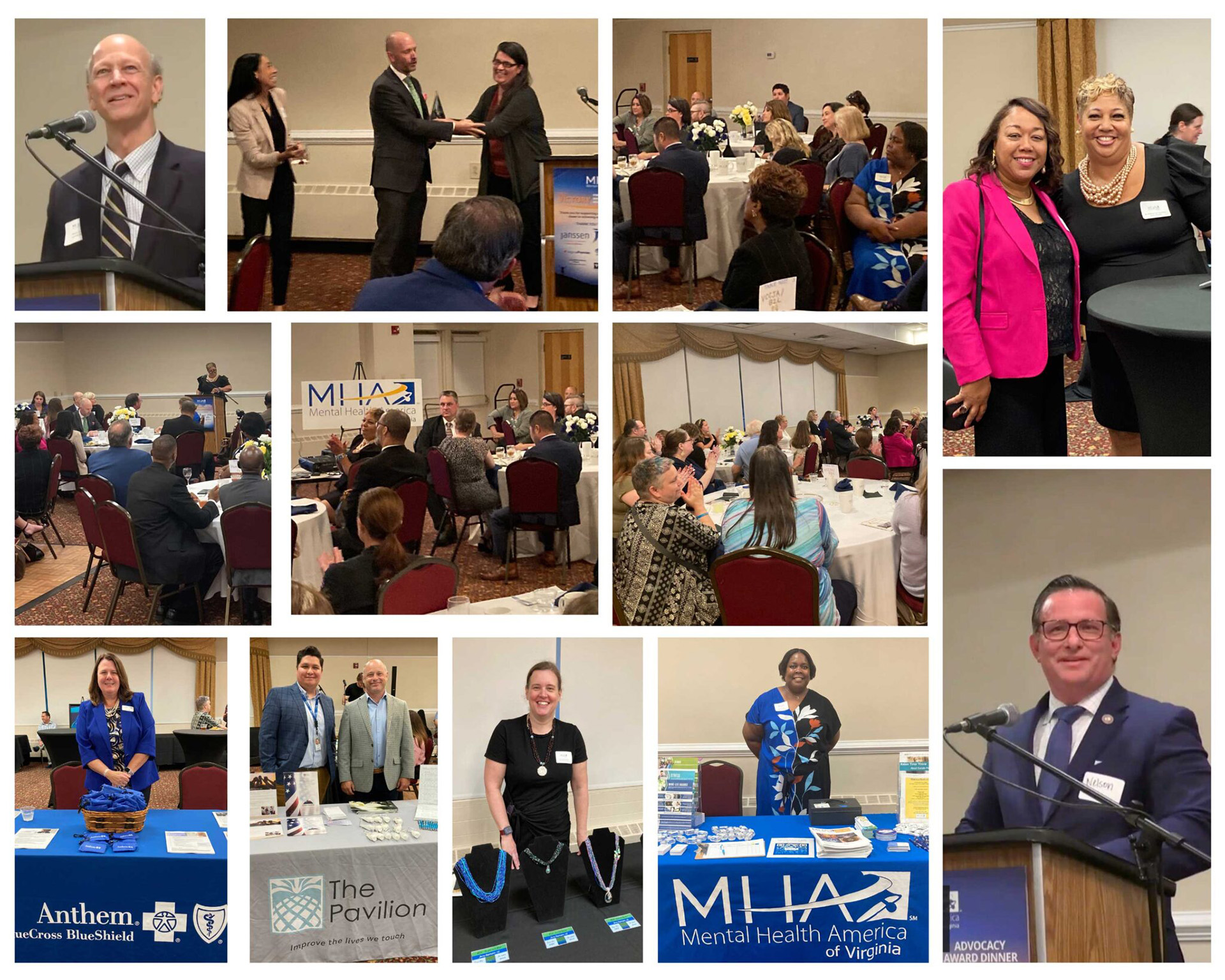
Victory for Mental Health Event 2022
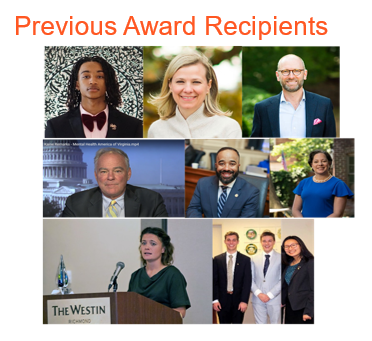
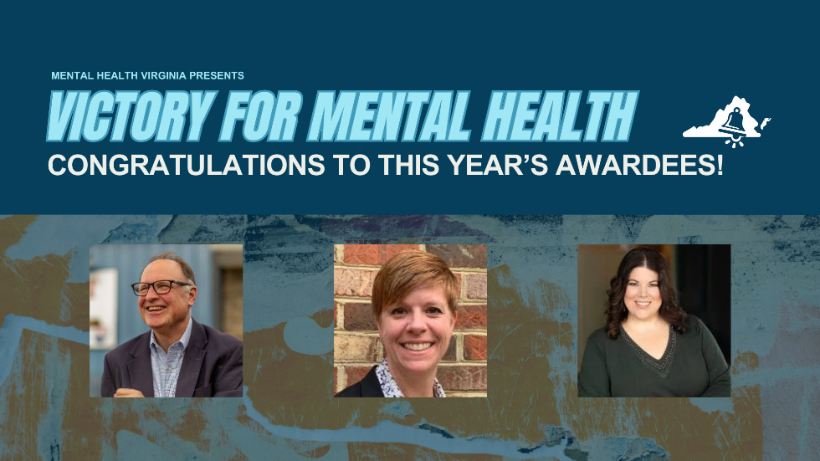
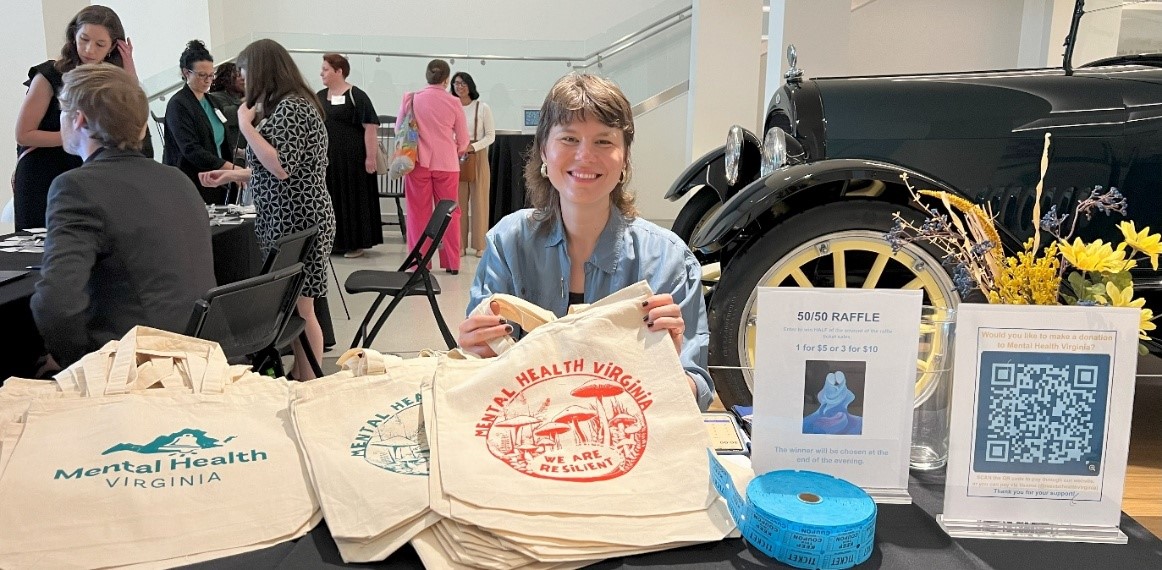
Finally, we shortened our name from Mental Health America of Virginia to Mental Health Virginia, still a proud affiliate of Mental Health America. The new name more succinctly identifies who we are and who we serve.
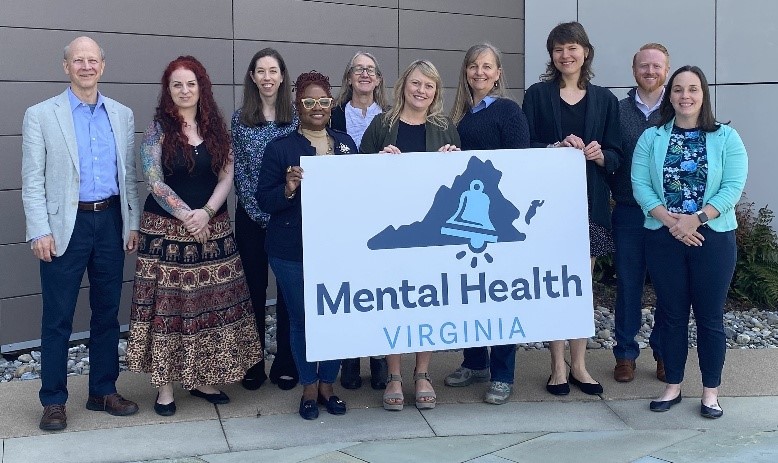
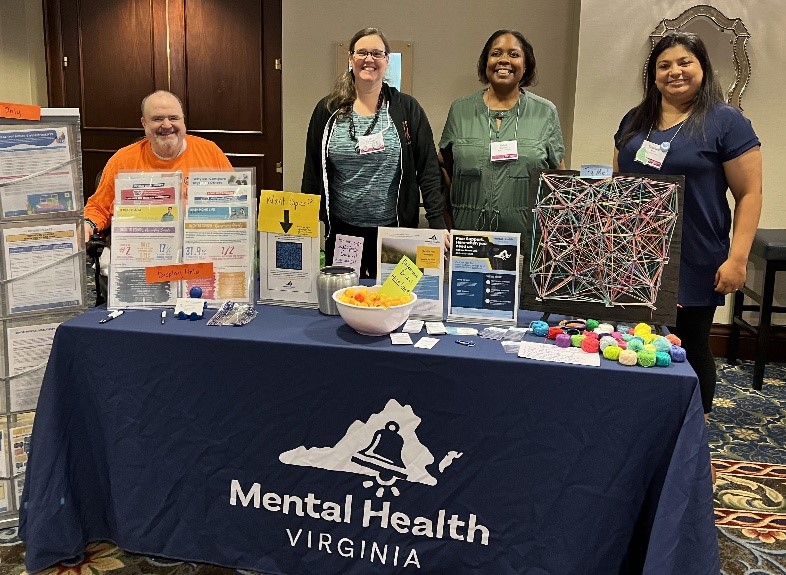
Other Partnerships:
The agency makes a difference in the lives of so many people because of the staff and board members who believe in the mission and work so hard to live into it. Thank you to all the staff, contractors and interns who provide our services. And a special thanks to the leadership of board presidents Nancy Graves, Anna Mendez, CC Jackson, Stephanie Barker and Cherie Hammond. I value the many hours of volunteer support you gave me and the organization.
A small non-profit has greater impact when partnering with others, and these relationships have been essential to providing direct services and advocacy, as well as energizing to me personally. Too many to name, they include government, foundations, corporations, private providers, associations, non-profits, individuals and others. I benefited tremendously from the knowledge and support of all our advocacy partners.
A sincere note of appreciation to Danielle Donaldson, our recovery education manager, whose service with the agency predates mine. Among her successes are developing the peer specialist network, and leading the recovery education changes during the pandemic. Experienced peer facilitators Kevin Kelly, Heather Fossen and Jamie Reavis also predate my term, and were key to implementing new programming.
Most of all, thank you to the warm line callers and program participants who want to live their best life, and who find the courage to share personal stories of their recovery journey.
Bruce
06/30/2025
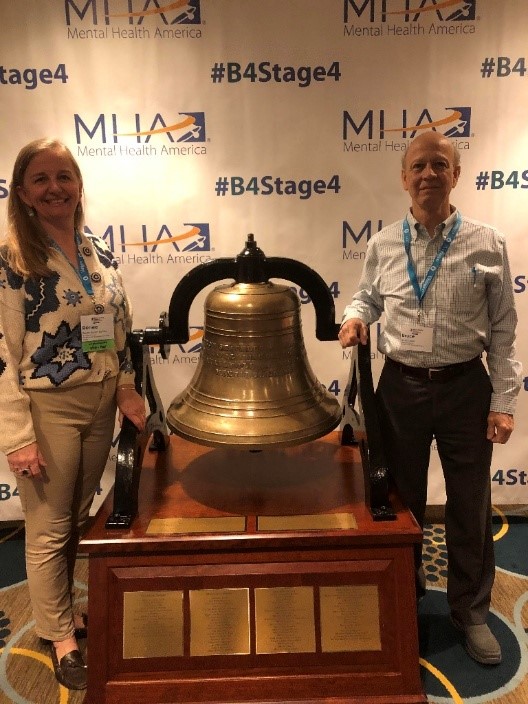
Ringing the MHA Bell of Hope with Renee Norden (MH Fauquier and MHV board member)


